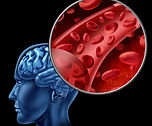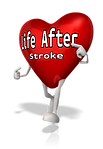St Mary's Hospital Stroke Rehabilitation Unit
Phoenix Park, Dublin, Ireland



Introducing the Rehabilitation Team
During your rehabilitation journey in Isolda Unit, you will meet staff from many disciplines who in partnership with you, will play an important role in your recovery and provide you with guidance and assistance along the way.
As a multidisciplinary team we work together with you to support you on your rehabilitation journey. The journey is continuous during your stay and we will meet as a team on a weekly basis to discuss your progress. The individual roles and responsibilities of each team member are outlined below.
About Us

Medical Team
Consultant Geriatrician – is responsible for the overall treatment and coordination of your medical care while you are in St. Mary’s Hospital
Medical Registrar with the Senior House Doctor will provide your day to day medical care during your stay.
The medical team will liaise with your GP regarding your care.

Clinical Nurse Specialist
The Clinical Nurse Specialist is involved in every aspect of your rehabilitation. Her role includes:
-
Advising you on your treatment
-
Assessment and collaboration with the nurses regarding your care (washing and dressing, eating, transferring ,walking and communication)
-
Organising meetings with you and your family, friends, consultant, and the stroke rehabilitation team
-
Teaching you about medication
-
Educating you on how best to prevent another stroke
-
As part of the team helping to plan your discharge and meeting you for follow up appointment after you are discharged from Isolda.

Rehabilitation Nurse
The nursing team is led by Clinical Nurse Manager with the support of the Clinical Nurse Specialist.
There are nurses providing 24 hours care, 7 days a week within the stroke rehabilitation unit. These nurses have all undergone specialist training and will play an important role in your rehabilitation.
They will help you to practice what you have learnt in therapy and educate you and your family on how to carry out personal care i.e. washing, dressing and grooming.
You can ask your nurse if you have any questions regarding your medication, meeting with the doctors and any other questions.

Health Care Assistant
Health Care Assistants support the rehabilitation nurses providing care throughout your rehabilitation journey in Isolda Unit. Their role includes:
-
Observing, monitoring and recording your condition by taking blood pressure, temperature, pulse, respirations and weight
-
Communicating with you, your family or your carer promoting positive reassurance
-
Assisting with your personal care - personal hygiene, comfort and safety
-
Assisting with meals - promoting nutritional health during your stay
-
Promoting infection prevention and control

The occupational therapist aims to work with you and your family to identify which areas of everyday life have become affected since your stroke. The aim of treatment is to help you regain lost skills; find new ways of doing things and/or to offer practical help and encouragement to maximise your independence.
An occupational therapist also encourages you to increase independence and participation through simplifying tasks or altering the environment.
During your time on the stroke unit, the occupational therapist and you will work on some/all of the following:
-
Restoring ability in washing, dressing, toileting, showering and grooming
-
Restoring /compensating for weak movement on the affected side of the body when completing everyday tasks
-
Improving concentration span, memory, problem-solving ability which may have been altered by the stroke
-
Identifying alternative ways of engaging in previous tasks and leisure pursuits
-
Ensuring safe participation in home (completing a home visit) cooking and community –based tasks (shopping)
-
Listening and advising you on how best to cope with the disability after stroke
-
Promoting maximal return of function and to discuss work- related issues (where appropriate)
-
Planning your discharge to aim for a smooth transition from hospital to home
View more information about our Occupational Therapy service

The physiotherapist will examine the effect of your stroke on your leg and arm movement, balance and your ability to sit, stand and walk. This is known as mobility.
The physiotherapist will then discuss the initial assessment results with you and your family and together realistic goals will be set. These goals will be based on the severity of your stroke, your previous functional ability and your progress in therapy.
When preparing to go home the physiotherapist will work with the Occupational Therapist and Social Worker to assess your home to ensure that you will be able to move around safely and independently.
The physiotherapist will be available to discuss any aspects of your assessment, treatment, goals and discharge plan while you are inpatient in Isolda ward.

Speech and Language Therapists will help you if you have communication and/or swallowing difficulties after a stroke.
View more information about our Speech and Language Therapy service

You will meet the dietitian during your stay in Isolda. The Dietitian works with you to provide information about food, nutrition and health. She will work with you and the other team members to ensure your nutritional needs are met. A healthy diet can optimise your rehabilitation and may reduce the risk of future strokes.
The Dietitian will perform a nutritional assessment. This may include:
-
Measuring weight and height to see if you are of a healthy weight
-
Checking if you have had any weight loss after stroke
-
Asking about appetite and current food intake and comparing them to your nutritional needs
-
Looking at any food related problems e.g. taste changes, swallowing problems, difficulties feeding
-
Identifying existing conditions such as high blood pressure, high cholesterol, diabetes, constipation, obesity which require dietary advice
-
Checking your bloods to see if you have any nutritional deficiencies
-
Monitoring your medications in conjunction with the doctor, such as laxatives, diabetes medication, multivitamins and many more.
Following this, you will receive personalised nutrition education. This may include: a sample meal plan, meal suggestions, snack ideas, cooking tips, a shopping list and store cupboard ideas. Sometimes special diets or nutritional supplements may be recommended.

Rehabilitation Assistant
Occupational Therapy assistants works under the direction of the Occupational Therapists in Isolda Unit to support you with functional re-training sessions such as:
-
Self-care practice
-
Upper limb (UL) practice
-
Meal preparation
-
Cognitive retraining
-
Wheelchair skills
-
Group or individual sessions

Your Key Worker
An identified member of the rehabilitation team on Isolda will have an additional role as a key worker.
The key worker will coordinate your care during your stay in Isolda and will provide you with information and advice about your rehabilitation journey.
The key worker will also:-
-
Provide support for you and your family during your stay
-
Act an advocate for you and your family on aspects of your care as and when required in relation to your rehabilitation
-
Communicate your progress at weekly meetings with the Rehabilitation team
-
Keep you informed of your goals, achievements and progress throughout your journey
-
Prepare a summary report in preparation for your discharge
The key worker will be available to you for the duration of your stay on Isolda.

The social worker provides counselling, information, emotional support and practical advice to you, your family and friends.
He/she does this by:
-
Providing advocacy and support to help you make informed decisions and to help you come to terms with your situation
-
Looking at your practical needs such as home help, meals on wheels, attending day centres or any other community services or supports you may require after discharge
-
Contacting community services and informing them of your needs
-
Providing financial advice and information on Social Welfare, Health Benefits and Entitlements
View more information about the role of the Medical Social Worker
Members of the Rehabilitation Team & Their Roles